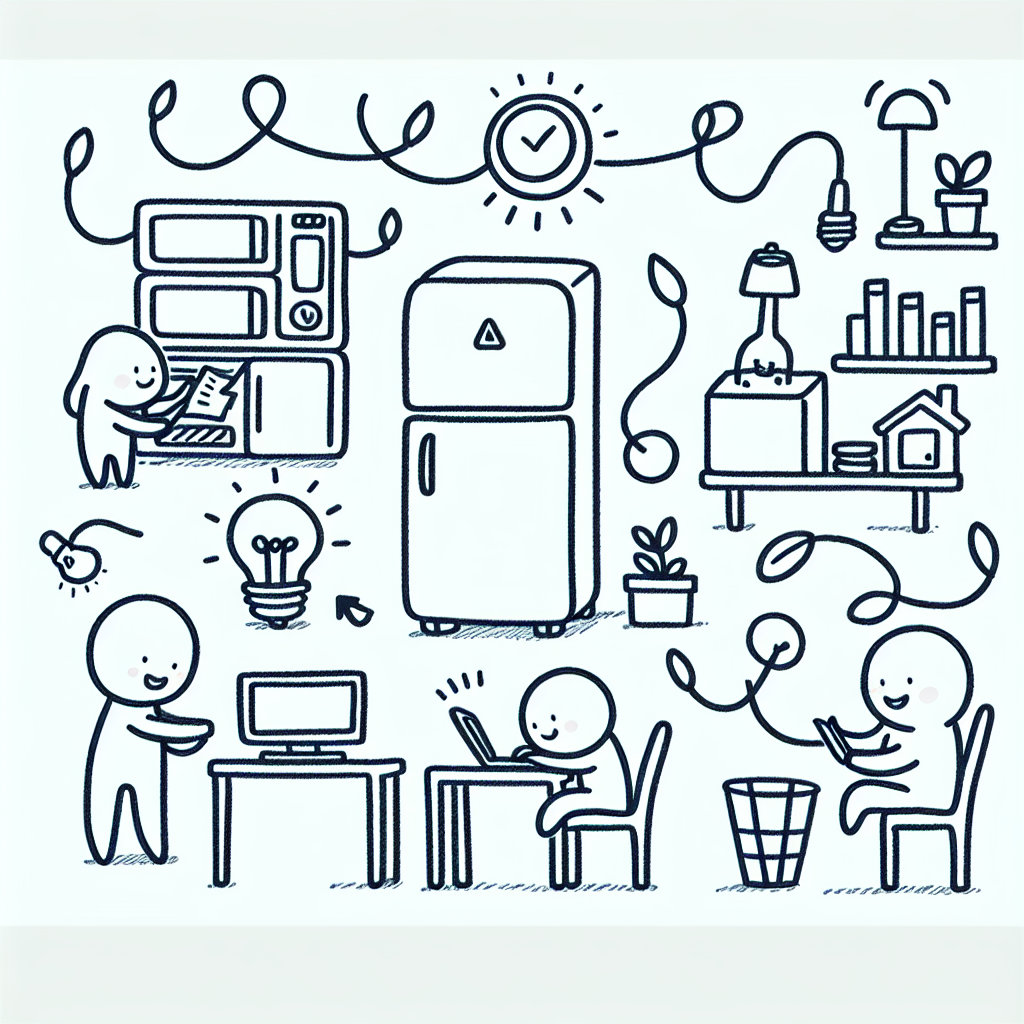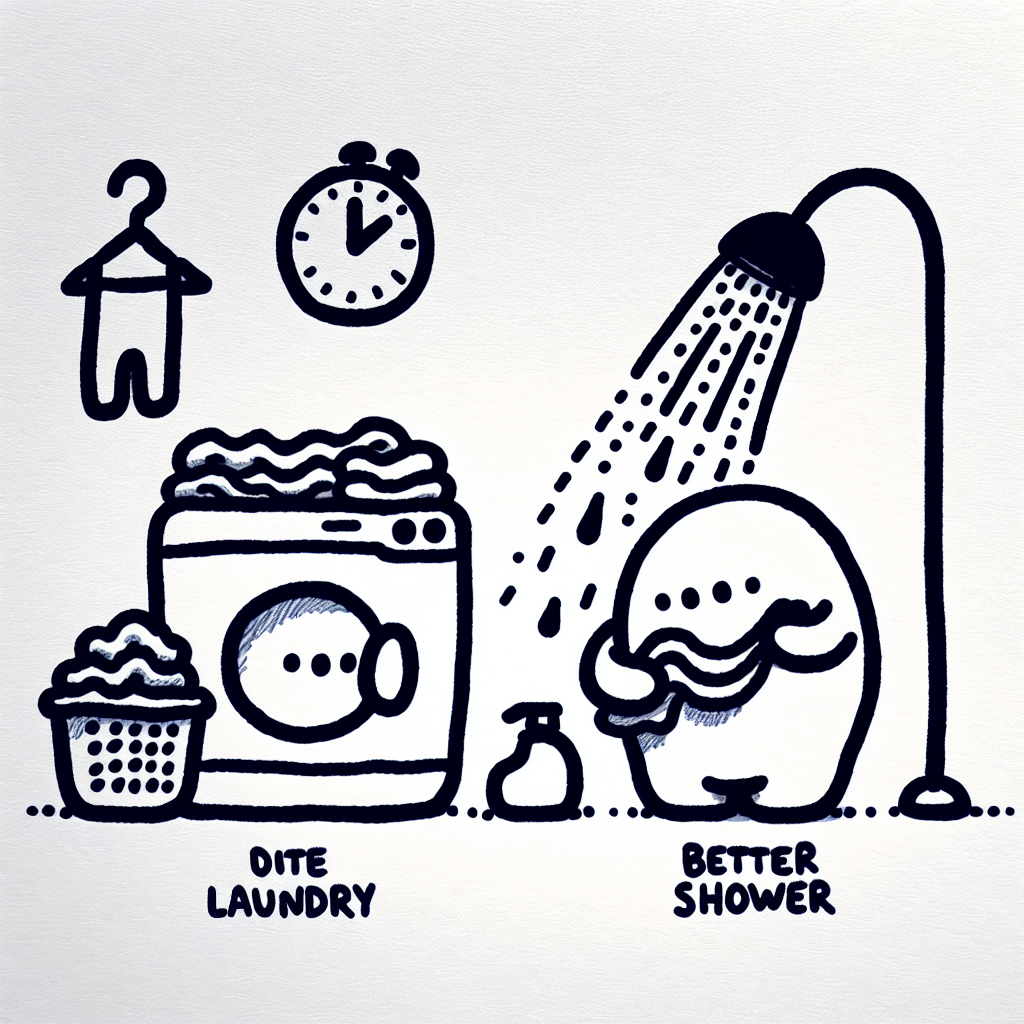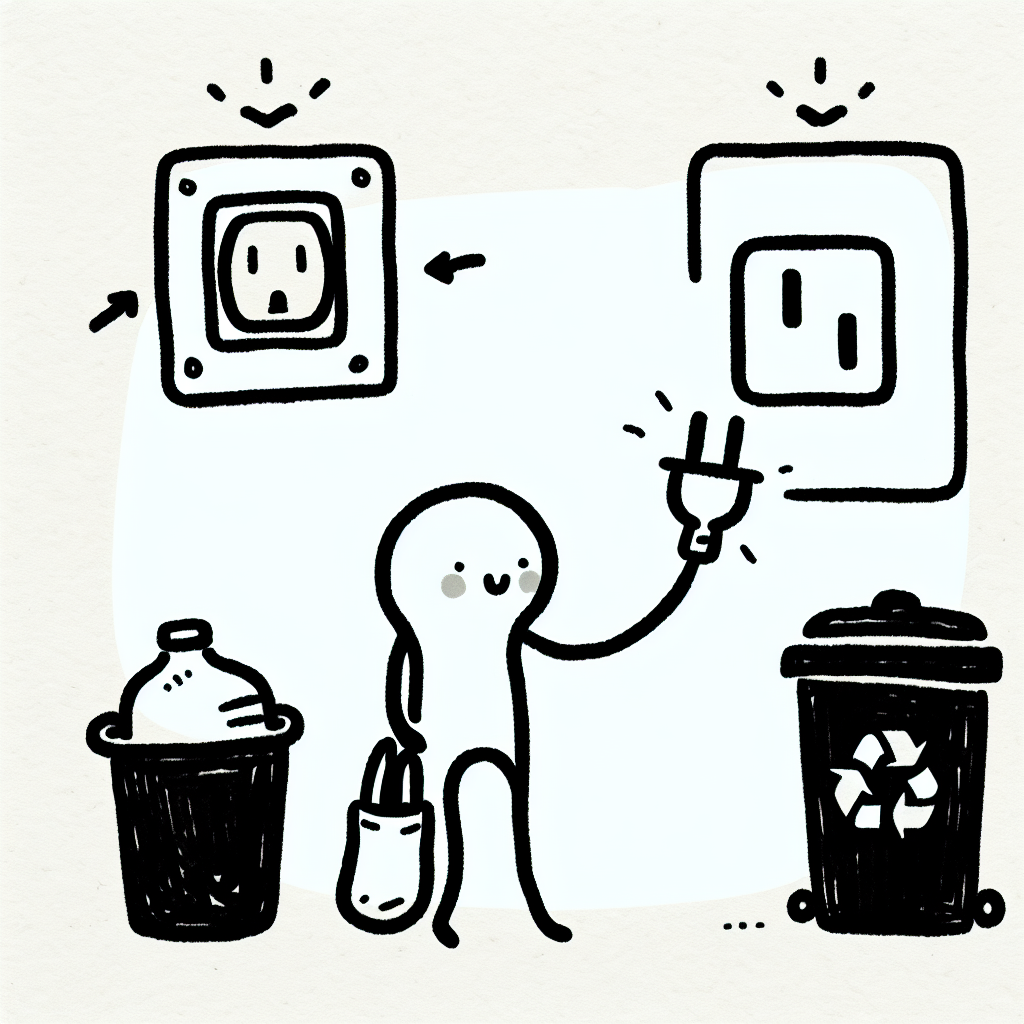Introduction: Why Eco-Friendly Dorm Living Matters
College campuses have a significant environmental footprint due to high energy consumption, waste generation, and resource use. Dormitories, as densely populated housing units, are key areas where sustainable changes can make a substantial impact. By adopting eco-friendly dorm tips, students can reduce their personal carbon footprints and contribute to broader campus sustainability goals.
Individual choices—such as using energy-efficient appliances, reducing single-use plastics, and conserving water—collectively influence the overall environmental impact of a dorm. Each small action, like turning off lights or recycling properly, helps decrease the demand on natural resources and limits pollution.
In addition to the environmental advantages, eco-friendly dorm living can also offer financial benefits. Using less electricity and water, and reusing materials, can lower utility bills and reduce the need for frequent purchases. Embracing sustainable habits supports both the planet and a student’s budget.

Energy Efficiency in the Dorm
Improving energy efficiency is a key part of following eco-friendly dorm tips. Even small changes in how you manage electronics and lighting can significantly reduce your environmental impact.
Unplugging & Power Management
Many electronic devices continue to draw power even when they’re turned off—a phenomenon known as phantom energy drain. Common culprits include phone chargers, gaming consoles, and microwaves. According to the UC Berkeley Energy Reduction Guide, unplugging these electronics when not in use is a simple but effective way to cut down on energy consumption.
Smart Plug & Power Strip Usage
Using surge-protected power strips makes it easier to manage multiple devices at once. Instead of unplugging each item individually, you can flip a single switch to disconnect several devices. For added convenience, label each plug or use color-coded strips to make it easier to identify what needs to be unplugged.
Lighting Choices
Lighting is another area where small adjustments go a long way. Switch to energy-efficient LED bulbs whenever possible—they use less power and last longer than traditional bulbs. During the day, rely on natural light and avoid using overhead lighting to minimize energy use.
Habits for Energy Savings
Developing good habits supports long-term energy savings. Set reminders to unplug devices before leaving your room or going to bed. Also, be sure to power down laptops and other electronics overnight. These simple steps align with practical eco-friendly dorm tips and help reduce your overall energy footprint.

🛏️ Sustainable Bedding & Furniture
Eco-Conscious Materials
Opting for bedding made from organic cotton, bamboo, or hemp is a key step in creating a more sustainable dorm environment. These materials are grown without harmful pesticides and require less water than conventional textiles, making them better for the planet and for your health. According to Boston University – Green Your Dorm, organic materials can help improve indoor air quality and reduce your exposure to chemicals typically found in traditional bedding.
Minimalist & Modular Furnishing
When furnishing your dorm, consider reusing or thrifting items instead of buying new. This not only reduces waste but also saves money. Look for multi-purpose furniture, like bed risers that include storage compartments or foldable desks that double as nightstands. Choosing modular, versatile pieces aligns with eco-friendly dorm tips by minimizing consumption and extending the life of each item.

🚿 Water Conservation Techniques
Efficient Laundry Practices
One of the most effective eco-friendly dorm tips is to adopt efficient laundry habits. Always wait until you have a full load before running the washing machine, as this maximizes water use per cycle. Additionally, use cold water for washing to conserve energy and water. According to Princeton University – Green Your Dorm, cold water washing can save up to 40 gallons of water per load.
Bathroom Habits
Reducing water use in the bathroom is another key strategy. Limit your showers to under 10 minutes to cut down on unnecessary water waste. If your dorm allows, consider installing a low-flow showerhead to reduce water flow without sacrificing pressure. Also, always turn off the faucet while brushing your teeth or shaving to avoid wasting water unnecessarily. These simple habits can make a significant impact as part of your eco-friendly dorm tips.

♻️ Waste Reduction & Smart Consumption
Say No to Single-Use
Reducing reliance on single-use items is a foundational step in adopting eco-friendly dorm tips. Disposable dishware, utensils, and bottled water contribute significantly to landfill waste. Instead, opt for reusable alternatives like stainless steel water bottles, cloth shopping bags, and insulated coffee mugs. According to the University of South Florida, cutting down on single-use products can help prevent 4 billion tons of landfill waste by 2100.
Responsible Purchasing
Smart consumption habits also play a critical role. Buying in bulk helps reduce packaging waste, and sharing supplies with roommates can prevent unnecessary duplication. These small actions align with eco-friendly dorm tips by minimizing waste and promoting collaboration.
Recycling Right
Proper recycling is essential to waste reduction. Every campus has its own recycling guidelines, so take time to understand what materials are accepted. Separate paper, plastics, and electronics correctly to ensure they are processed effectively. Following your school’s recycling protocols is a simple yet impactful way to support sustainability in your dorm life.

📦 Sustainable Move-In & Move-Out
Eco-Friendly Packing
One of the most effective eco-friendly dorm tips is to use reusable containers during move-in and move-out. Instead of relying on cardboard boxes, opt for suitcases, laundry baskets, and storage bins that can be used throughout the year. This approach minimizes single-use materials and streamlines storage.
According to the University of Washington, reducing cardboard usage during move-in significantly cuts down on campus waste, making the process more sustainable and manageable.
Donation & Reuse Programs
At the end of each semester, students can divert waste by participating in campus-supported donation and reuse programs. Many schools host swap events where students can exchange items like clothing, décor, and small appliances. These events promote reuse and keep usable goods out of landfills.
Additionally, donating gently used items to local charities or campus collection drives ensures that belongings find a second life instead of becoming trash. These practices are simple but impactful eco-friendly dorm tips that support a more sustainable campus community.

🍽️ Sustainable Eating in the Dorm
Smart Food Habits
Adopting smart food habits is a key part of eco-friendly dorm tips. Start by using reusable containers, utensils, and water bottles to reduce single-use plastic waste. Instead of buying individually packaged snacks, choose bulk items and portion them out yourself. This reduces packaging waste and often saves money. When shopping, look for local and organic food options when available. Supporting local producers cuts down on transportation emissions, and organic products are typically grown with fewer harmful chemicals.
Food Waste Reduction
Reducing food waste is another important step toward sustainable dorm living. One effective strategy is to meal plan each week. Planning your meals helps avoid buying more food than you can eat, which reduces spoilage. If your dorm or campus provides composting facilities, use them to dispose of food scraps like fruit peels and coffee grounds. Composting diverts waste from landfills and can return nutrients to the soil, supporting a more sustainable food cycle.

🧼 Cleaning & Personal Care
Maintaining a clean and healthy dorm room doesn't have to come at the expense of the environment. These eco-friendly dorm tips focus on reducing waste and avoiding harmful chemicals in your daily cleaning and personal care routine.
Eco-Friendly Cleaners
Swap out harsh chemical cleaners for non-toxic, biodegradable alternatives. Many green cleaning products are plant-based and just as effective for everyday dorm messes. You can also make your own cleaners using simple ingredients like white vinegar, baking soda, and lemon juice. For example, mix equal parts vinegar and water in a spray bottle for an all-purpose cleaner that works on most surfaces.
Sustainable Toiletries
Opt for personal care items that generate less waste. Refillable containers and plastic-free packaging help minimize your environmental footprint. Consider switching to solid shampoo bars instead of bottled versions, bamboo toothbrushes instead of plastic ones, and reusable cotton pads in place of disposable wipes. These small changes are easy to implement and support a more sustainable lifestyle in your dorm.

🌿 Engaging with Campus Sustainability
Join Green Campus Groups
One of the most effective eco-friendly dorm tips is to get involved with existing sustainability efforts on campus. Many colleges have environmental clubs or green student organizations that focus on reducing waste, conserving energy, and promoting sustainable living among students. Joining these groups can provide access to campus-wide initiatives, volunteer opportunities, and dorm-based sustainability competitions. These competitions often reward points for eco-conscious habits like turning off lights, recycling properly, and reducing water usage.
Advocate for Change
Students can also make a difference by advocating for greener policies within their residence halls. Collaborating with housing coordinators is a practical way to suggest and implement improvements such as more accessible recycling bins, composting programs, or energy-efficient lighting. Promoting energy-saving habits, like unplugging electronics and using natural light, helps build a culture of sustainability. Sharing these eco-friendly dorm tips with peers can lead to broader change and support long-term environmental goals on campus.

Final Checklist: Daily Habits for a Greener Dorm
Practicing simple, daily routines can make a significant impact when it comes to maintaining an environmentally conscious lifestyle in your dorm. Use this checklist to stay consistent with your eco-friendly dorm tips:
- Unplug devices daily: Many electronics draw power even when turned off. Unplugging chargers, lamps, and other devices when not in use helps reduce phantom energy consumption.
- Use reusable items: Swap out disposable water bottles, coffee cups, and shopping bags for reusable versions. This cuts down on daily waste and supports long-term sustainability.
- Recycle properly: Know your dorm’s recycling guidelines and separate paper, plastic, glass, and metal accordingly. Make sure items are clean and dry before recycling.
- Turn off lights when leaving room: A simple habit like switching off lights when you're not in the room can significantly cut down your electricity use.
- Limit shower time: Shorter showers conserve both water and the energy it takes to heat it. Aim for five-minute showers whenever possible.
- Wash full loads with cold water: Doing laundry only when you have a full load and using cold water reduces water and energy consumption.
- Choose eco-friendly products: Opt for biodegradable cleaning supplies, recycled paper products, and energy-efficient bulbs to minimize your dorm’s environmental footprint.
By incorporating these habits into your daily routine, you help create a more sustainable living space and contribute to a healthier planet.

📚 Resources for Further Reading
For students looking to dive deeper into eco-friendly dorm tips, several universities offer comprehensive guides and actionable strategies:
- UC Berkeley Energy Reduction Guide offers practical advice on reducing energy usage in residence halls through lighting, appliance management, and behavioral changes.
- Boston University – Green Your Dorm outlines easy steps to create a sustainable living space, including recommendations on waste reduction, water conservation, and responsible consumption.
- Princeton University – Green Your Dorm provides a checklist for students to assess and improve their dorm’s sustainability, touching on energy, waste, and transportation habits.
- University of South Florida – 8 Sustainability Tips shares essential eco-friendly dorm tips tailored for college life, such as using reusable items and minimizing single-use plastics.
- University of Washington – Sustainable Move-In Tips offers guidance on preparing for a sustainable move-in experience, including packing suggestions and post-move recycling strategies.
These resources provide valuable insights and practical tools to help students implement eco-friendly dorm tips across campuses.

Conclusion
Living sustainably in a dorm doesn’t require major sacrifices—just mindful choices. By following practical eco-friendly dorm tips, students can make a meaningful difference in their environmental impact. Simple habits like conserving energy, reducing waste, and choosing reusable products not only support the planet but also help save money. Adopting these strategies contributes to a healthier, more conscious lifestyle, even within the limited space of a dorm room.







.png)






